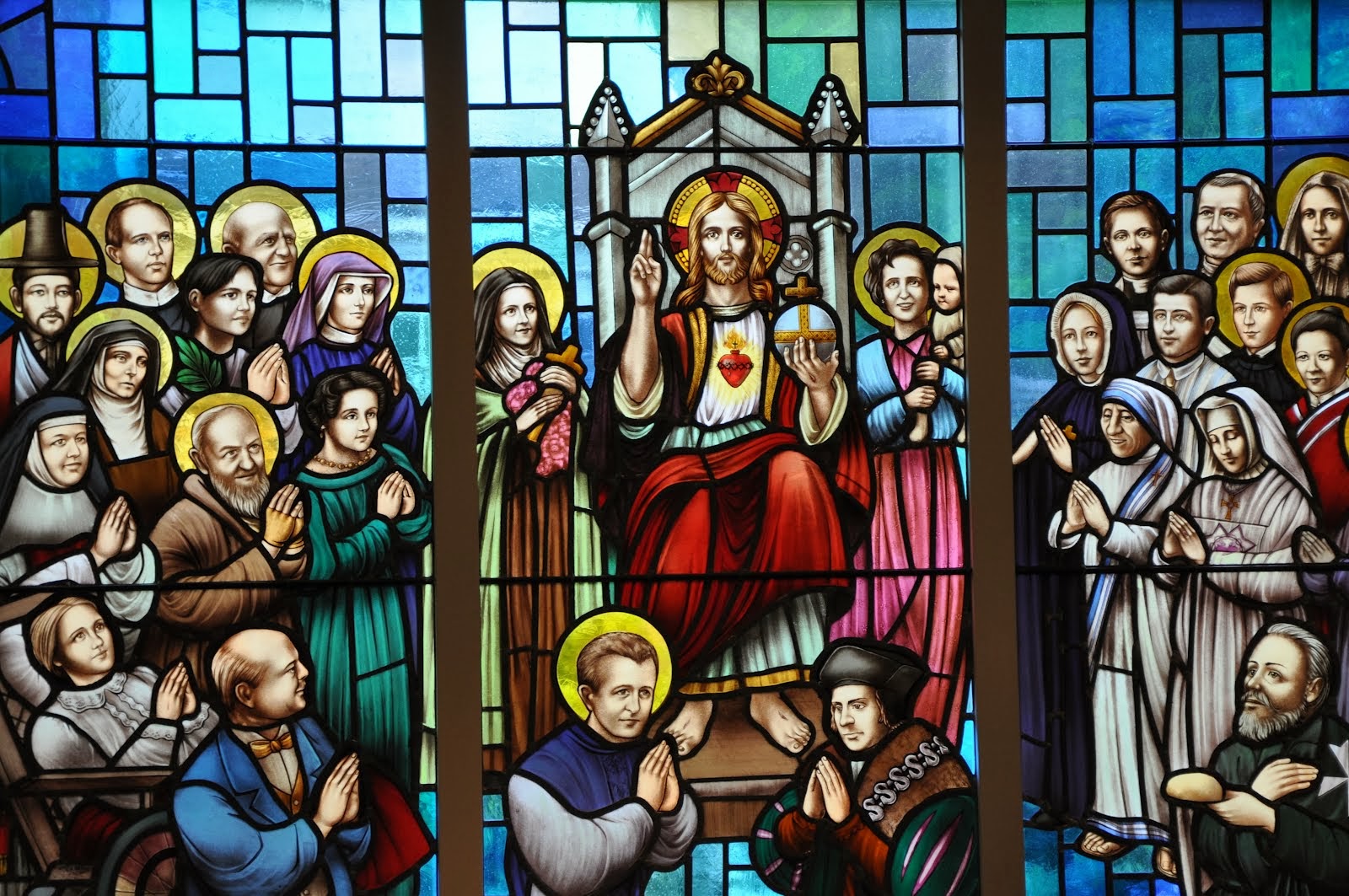
“The sainted martyrs…have inspired aged men to accomplish with much love a long course, and constrained them to support their failing steps by the staff of the Word; and they have stimulated women to finish their course like the young men, and have brought to this, too, those of tender years, yea, even creeping children. In this wise have the martyrs shown their power, leaping with joy in the presence of death, laughing at the sword, making sport of the wrath of princes, grasping at death as the producer of deathlessness…” St. Gregory Thaumaturgus (3rd century)
“To the saints honor must be paid as friends of Christ, as sons and heirs of God…And further, if the Creator and Lord of all things is called also King of kings and Lord of lords and God of gods, surely also the saints are gods and lords and kings….Now I mean gods and kings and lords not in nature, but as rulers and masters of their passions, and as preserving a truthful likeness to the divine image according to which they were made (for the image of a king is also called king), and as being united to God of their own free will and receiving Him as an indweller and becoming by grace through participation with Him what He is Himself by nature. Surely, then, the worshipers and friends and sons of God are to be held in honor.” St. John of Damascus (7th-8th centuries, Doctor of the Church)
“The whole science of the saints consists in knowing and following the will of God.” St. Isidore of Seville (6th-7th centuries, Doctor of the Church)
“Calling the saints to mind inspires, or rather arouses in us, above all else, a longing to enjoy their company, so desirable in itself. We long to share in the citizenship of heaven, to dwell with the spirits of the blessed, to join the assembly of patriarchs, the ranks of the prophets, the council of apostles, the great host of martyrs, the noble company of confessors and the choir of virgins. In short, we long to be united in happiness with all the saints.” St. Bernard of Clairvaux (11th-12th centuries)
“I am sending you the Life of St. Catherine of Siena, who is my Mistress and Directress. She moves and touches me so deeply that each time I read her life, I have to hold the book in one hand and a handkerchief in the other to staunch the tears that it makes me shed continually.” St. Anthony Mary Claret (19th century)
“…the Saints are ever in our sight, and not as mere ineffectual ghosts, but as if present bodily in their past selves. It is said of them, ‘Their works do follow them’; what they were here, such are they in heaven and in the Church. As we call them by their earthly names, so we contemplate them in their earthly characters and histories. Their acts, callings, and relations below, are types and anticipations of their mission above.” St. John Henry Newman (19th century)
“Open, o Lord, the Book of Life in which are written the deeds of Thy saints; all the deeds told in that book I long to have accomplished for Thee. I would be a martyr, a Doctor of the Church. I should like to accomplish the most heroic deeds – the spirit of the Crusader burns in me, and I long to die on the battlefield in defense of Holy Church. I would be a Missionary. I would be flayed like St. Bartholomew, plunged into boiling oil like St. John, or, like St. Ignatius of Antioch, I would be ground by the teeth of wild beasts into bread worthy of God. With St. Agnes and St. Cecilia I would offer my neck to the sword of the executioner, and like St. Joan of Arc I would murmur the Name of Jesus at the stake.” St. Therese of Lisieux (19th century, Doctor of the Church)
“Saints are happy in situations when others are in despair; they are so emancipated from life’s accidentals, so rooted in God, that, like the ocean, they remain calm in the depths although the waves may roar at the surface.” Ven. Fulton Sheen (19th-20th centuries)
“By their eloquent and attractive example of a life completely transfigured by the splendor of moral truth, the martyrs and, in general, all the Church’s Saints, light up every period of history by reawakening its moral sense. By witnessing fully to the good, they are a living reproof to those who transgress the law, and they make the words of the Prophet echo ever afresh: ‘Woe to those who call evil good and good evil, who put darkness for light and light for darkness, who put bitter for sweet and sweet for bitter’!” Pope St. John Paul II (20th-21st centuries)
